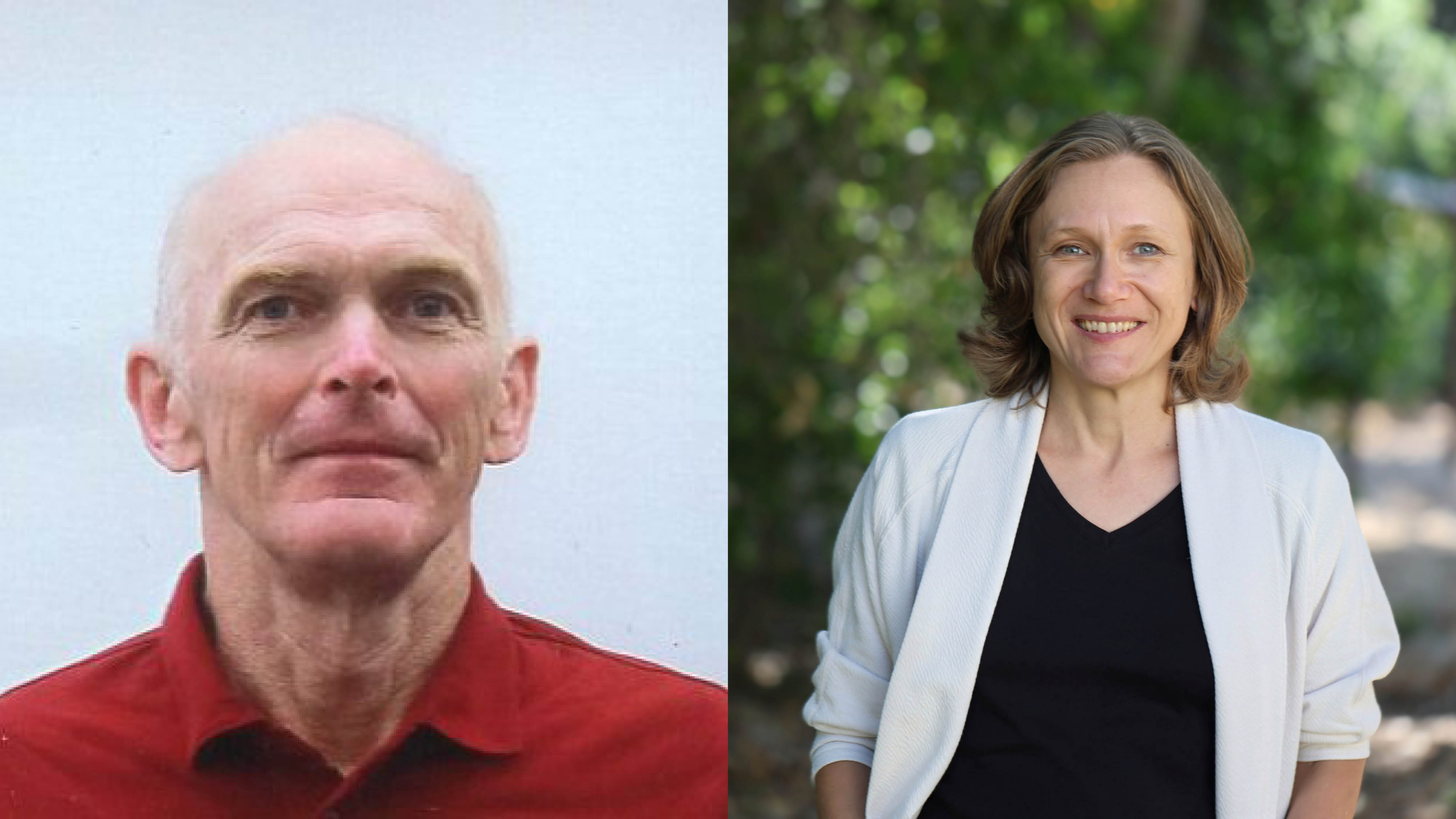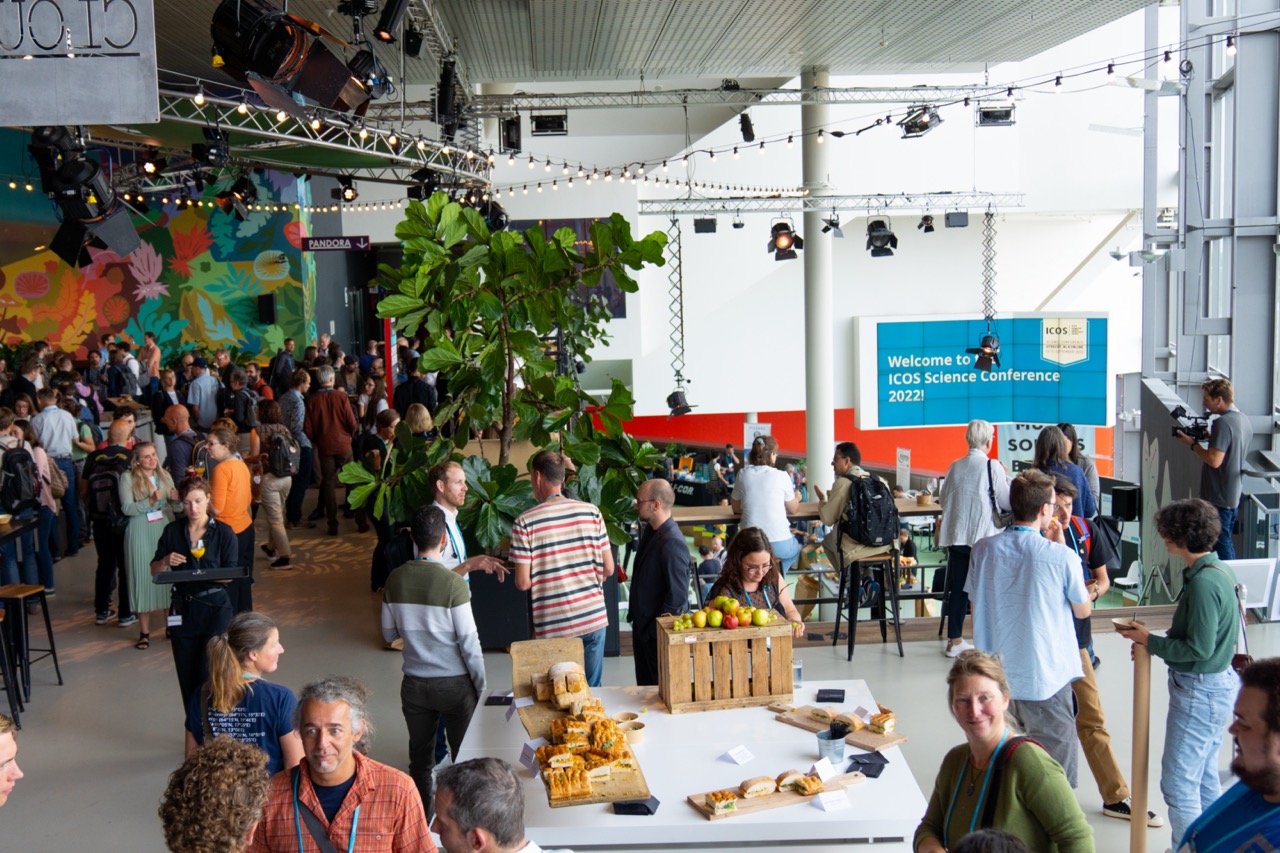
In 2023, the ICOS Scientific Advisory Board (SAB) underwent some changes as two long-standing members ended their terms in the SAB after serving seven years. Dr Anna Michalak and Dr Rik Wanninkhof joined the ICOS SAB at the very beginning of the Research Infrastructure, in 2016, leaving a long-standing mark on the RI.
The ICOS Scientific Advisory Board (SAB) provides the ICOS General Assembly, the highest decision-making body of ICOS, with strategic advice on developing ICOS RI activities, and analyses scientific results and wider impacts of ICOS RI.
“Committed SAB members, when they give their all, like Rik and Anna, are instrumental in shaping the direction of ICOS”, says Science Integration Officer Dr Sindu Raj Parampil from the ICOS Head Office. “We need people who are objective, critical and who have the depth of knowledge to help us navigate this complex system.”
The interaction with the Scientific Advisory Board is very active, and it’s not only the General Assembly that seeks advice from the SAB. The board’s views on strategy and scientific questions are also appreciated by the RICOM (Research Infrastructure Committee), which is comprised of the leads of the Thematic Centres, Central Facilities and the MSA (Monitoring Station Assemblies).
”I found it truly inspiring to work with such a broad group of stakeholders, ranging from the country representatives to the ICOS Head Office staff, and to research scientists across the ICOS network, who were all united in their commitment to fulfilling the mission and promise of ICOS", says Dr Michalak.
The respect between ICOS and the two previous Scientific Advisory Board members is mutual.
“The ICOS SAB was special in the sense that it felt that they really wanted to hear the advisors' opinions”, Dr Wanninkhof describes. “When we provided our recommendations, ICOS would always follow up with both verbal and written responses – both the Head Office and the Thematic Centre, as well as individual scientists.”

A long perspective of ICOS offers insight into the future
Having been with ICOS through the early days gives both Dr. Michalak and Dr. Wanninkhof a unique perspective on the RI. Dr Wanninkhof says he was intrigued by the idea of ICOS from the very beginning but admits to having questions how a country would be motivated to pay a membership fee to be a part of the network.
“I saw it as a challenge that a country has to pay to get into this organisation. But I liked audacious ideas about how to move the science forward”, Dr Wanninkhof says.
“The key to the success of ICOS is that they add value to the whole system. Scientists get valuable services from ICOS and get to be part of this unified effort.”
As the Research Infrastructure developed, it became apparent that ICOS could offer scientists, and the society at large, something of value.
“The key to the success of ICOS is that they add value to the whole system. Scientists get valuable services from ICOS and get to be part of this unified effort", Dr Wanninkhof says says.
In the next seven years, Dr Wanninkhof would like to see ICOS expand its regional reach by gaining new member countries in Eastern Europe, and continue to fund new incentives while focusing on its activities – which is monitoring greenhouse gases. Another highly topical aspect is carbon accounting and verifying, for which ICOS can offer a lot of expertise.
Dr Michalak, similarly, sees that ICOS will only grow in significance.
”I see the influence and importance of ICOS increasing tremendously over the next seven years”, Dr Michalak says. ”The observations enabled by the ICOS community are already central to both science and action, and this will only increase over time.”

Increasing the interaction between science and policy
The contributions of Anna Michalak and Rik Wanninkhof to the ICOS Scientific Advisory Board are highly regarded by the ICOS community. Sindu Raj Parampil describes them as a fully committed, contributive force in the SAB.
“Both gave the board their full attention and were highly committed to the suggestions the ICOS community put forward over the years”, she praises.
The scientific communities, although global, are surprisingly well-connected through various initiatives. Even after their time in the SAB, Dr Wanninkhof and Dr Michalak will continue to interact with ICOS through their efforts in other organisations. Dr Wanninkhof will continue to work particularly with the ICOS Ocean domain through SOCONET, a surface water CO2 observing network in which he is involved, while Dr Michalak works to reduce barriers between scientists, decision-makers and other external partners.
“Since completing my term as Chair of the ICOS SAB, I have devoted an increasing amount of time to reducing the barriers between science and other key players. I have served as co-chair of the advisory board for two new climate-focused programs that will be supported by the Schmidt Futures philanthropy, and I am also working with Google Research as a Visiting Faculty Researcher to help them identify opportunities for contributing to work in climate.”
”ICOS is a perfect example in helping to make the interface between the scientific community and European decision-makers work more effectively”, she concludes.
On behalf of the whole ICOS community, we would like to wish Dr Anna Michalak and Dr Rik Wanninkhof all the best and thank them for their valuable contribution to the ICOS Scientific Advisory Board. The work of the SAB continues now with an esteemed group of scientists: Dr Ankur Desai (Chair), Dr John Miller (co-chair), Dr Philippe Ciais, Dr Dorothee Bakker and Dr Eric Kort.